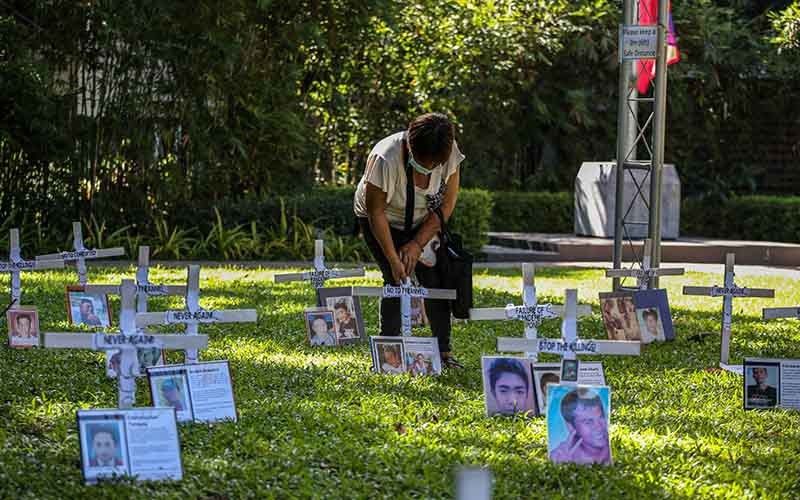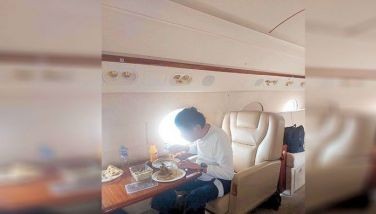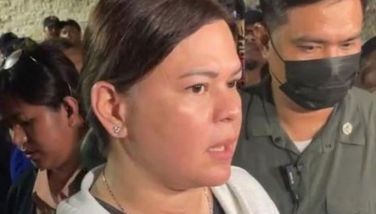Duterte 'drug war' still hot topic as Marcos admin faces UN rights review

MANILA, Philippines — The culture of impunity around deaths in the "war on drugs" waged by President Rodrigo Duterte — impunity that the government says does not exist — hounds the administration of President Ferdinand “Bongbong” Marcos Jr. as officials face a United Nations panel.
During the fourth cycle of the Universal Periodic Review of the Philippines at the United Nations Human Rights Council, at least 12 countries took note of the human rights situation in the Philippines after thousands were killed in the "war on drugs", with law enforcement claiming most drug suspects violently resisted arrest.
The UPR is a regular peer-review mechanism of the UNHRC to evaluate member states' compliance with their commitments to uphold and promote human rights.
Representatives of Argentina, Australia, Austria, Brazil, Canada, Chile, Czech Republic, Estonia, France, Germany, Iceland and Ireland all recommended that the Philippines take measures to ensure that the perpetrators of extrajudicial and summary killings linked to the "war on drugs" are made accountable.
RELATED: Zubiri lashes out vs 'chilling effect,' urges media to help 'beautify' Philippines' image
Canada recommended that the Philippines, whose delegation was led by Justice Secretary Jesus Crispin "Boying" Remulla, "ensure that the victims of war on drugs have access to justice by investigating and prosecuting alleged illegal acts committed by law enforcement officials and swiftly concluding associated trial proceedings."
DOJ: Review of 'drug war' deaths ongoing, domestic processes working
Remulla had already reported to the UNHRC that the Department of Justice-led review panel on "war on drugs" operations is still working and referred 302 incidents to the National Bureau of Investigation for case build-up.
The DOJ secretary also said the Philippines "has existing national accountability mechanisms, and has endeavored to improve data-collection, set up a national mechanism for implementation, reporting and follow-up of recommendations from UN human rights mechanisms," and it is pursuing a "human-rights based illegal drug control program."
The recognition of human rights is a departure from statements by officials early in the Duterte administration that drug suspects and criminals are "not really" human.
Anti-drugs operations have continued under the Marcos Jr. administration, and have resulted in dozens of deaths. Police Gen. Rodolfo Azurin, Philippine National Police chief, said that 32 have died in their operations while 14 others were killed in Philippine Drug Enforcement Agency operations.
The Czech Republic suggested that the Philippines "undertake an independent investigation of the extrajudicial killings related to the ‘war on drugs,’ ensure accountability for perpetrators as well as justice remedy and reparations for victims and families."
Return to International Criminal Court?
Countries have also urged the Philippines to consider rejoining the International Criminal Court, where families of the victims of the "war on drugs" have accused Duterte and his officials of committing crimes against humanity.
Austria said it regrets the Philippines’ withdrawal from the ICC, as they offered a recommendation to the Marcos government to reenter the Rome Statute and "ensure designing into law of the human rights protection bill, amend [Anti-Terrorism Act of 2020] to conform with international human rights standards, support to children whose parents died due to ‘war on drugs’ added compensation."
Ireland also reminded the Philippines of its obligation to cooperate with ongoing investigations in alleged crimes against humanity committed during the Duterte administration.
But Marcos, who stressed the "importance of ensuring high-level accountability" for human rights violations when he was still president-elect, has already dashed hopes for the country rejoining the ICC.
Barely five weeks into his presidenyc, Marcos said the country "has no intention of rejoining the ICC."
Lawyer Kristina Conti, counsel of families of "war on drugs" victims, said in an earlier Philstar.com report that Marcos’ decision "[deprives] ordinary Filipinos of an opportunity and a last resort for crimes against humanity, which most usually are crime committed by the State or massive political forces."
"Should Marcos also choose not to cooperate with the international court’s investigation supported and called for by many Filipinos, he will contend with a political storm with international impact," she added.
- Latest
- Trending



























